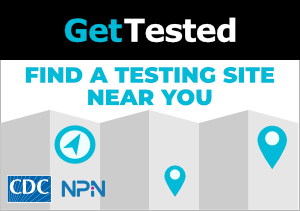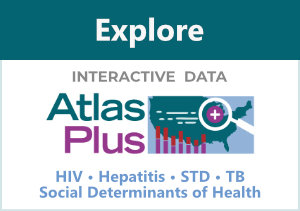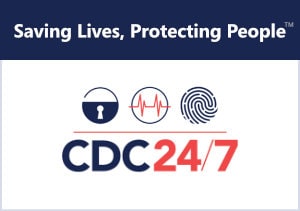HIV Preventive Services Coverage
HIV Testing
| Recommending Authority | Eligible Populations and Service Specifics | Plans That Cover Without Cost-Sharing |
|---|---|---|
| USPSTF (Grade “A”, June 2019) |
Screen for HIV infection in adolescents and adults aged 15 to 65 years.
Screen all pregnant women for HIV, including those who present in labor who are untested and whose HIV status is unknown.1 (See Human Immunodeficiency Virus (HIV) Infection: Screening for additional information.) |
Non-grandfathered private health insurance plans Medicaid expansion plans Traditional Medicaid plans* |
| Women’s Preventive Services Guidelines (December 2016) |
Screen for HIV infection annually for all sexually active women.2 (See Women’s Preventive Service Guidelines for additional information.) |
Non-grandfathered private health insurance plans Medicaid expansion plans |
| Bright Futures/AAP Recommendations for Pediatric Preventive Health Care
(March 2020) |
Adolescents should be screened for HIV according to the USPSTF recommendations once between the ages of 15 and 18, making every effort to preserve confidentiality of the adolescent.
Adolescents ages 11 through 21 who are at increased risk of HIV infection, including those who are sexually active, participate in injection drug use, or are being tested for other sexually transmitted infections (STIs), should be tested for HIV and reassessed annually.3 (See Recommendations for Preventive Pediatric Health Care for additional information.) |
Non-grandfathered private health insurance plans Medicaid expansion plans Traditional Medicaid plans |
*Optional for adults, depending on state policy; however, preventive services for children are often covered as part of the Early and Periodic Screening, Diagnostic, and Treatment (EPSDT) benefit for children.
HIV Preexposure Prophylaxis
| Recommending Authority | Eligible Populations and Service Specifics | Plans That Cover Without Cost-Sharing |
|---|---|---|
| USPSTF (Grade “A”, June 2019) |
The USPSTF recommends that clinicians offer preexposure prophylaxis (PrEP) with effective antiretroviral therapy to persons who are at high risk of HIV acquisition.4 (See Prevention of Human Immunodeficiency Virus (HIV) Infection: Preexposure Prophylaxis for additional information.) |
Non-grandfathered private health insurance plans Medicaid expansion plans Traditional Medicaid plans* |
*Optional for adults, depending on state policy; however, preventive services for children are often covered as part of the Early and Periodic Screening, Diagnostic, and Treatment (EPSDT) benefit for children.
Sexually Transmitted Infection and HIV Prevention Counseling
| Recommending Authority | Eligible Populations and Service Specifics | Plans That Cover Without Cost-Sharing |
|---|---|---|
| USPSTF (Grade “B”, September 2014) |
Provide intensive behavioral counseling to prevent sexually transmitted infections (STIs) to all sexually active adolescents and for adults at increased risk for STIs.5 (See Sexually Transmitted Infections: Behavioral Counseling for a discussion of risk factors.) |
Non-grandfathered private health insurance plans Medicaid expansion plans Traditional Medicaid plans* |
| Women’s Preventive Services Guidelines (December 2016) |
Provide counseling on sexually transmitted infections, including HIV, for all sexually active women.2 (See Women’s Preventive Services Guidelines for additional information.) |
Non-grandfathered private health insurance plans Medicaid expansion plans |
*Optional for adults, depending on state policy; however, preventive services for children are often covered as part of the Early and Periodic Screening, Diagnostic, and Treatment (EPSDT) benefit for children.
Section 2713 of the Public Health Service (PHS) Act, as added by the Affordable Care Act and incorporated into ERISA (The Employee Retirement Income Security Act of 1974) and the Code, requires that non-grandfathered group health plans and health insurance issuers offering non-grandfathered group or individual health insurance coverage provide coverage of certain specified preventive services without cost sharing.6 These preventive services include:
- Evidence-based items or services that have an “A” or “B” recommendation rating from the United States Preventive Services Task Force (USPSTF).
- Immunizations recommended for routine use in children, adolescents, and adults by the Advisory Committee on Immunization Practices (ACIP).
- Evidence-informed recommendations to improve the health and wellbeing of infants, children, and adolescents that are included in the Health Resources and Services Administration’s (HRSA’s) Bright Futures Project.
- Recommended services included in the HRSA-supported Women’s Preventive Services Guidelines, including all Food and Drug Administration (FDA)-approved contraceptives, sterilization procedures, and patient education and counseling for women with reproductive capacity, as prescribed by a health care provider.
In addition to these services, private and public plans may cover other preventive services without cost-sharing.
- Human Immunodeficiency Virus (HIV) Infection: Screening; U.S. Preventive Services Task Force. June 2019
- Women’s Preventive Services Guidelines; Health Resources and Services Administration. December 2016.
- Bright Futures/AAP Recommendations for Pediatric Preventive Health Care; American Academy of Pediatrics. March 2020
- Prevention of Human Immunodeficiency Virus (HIV) Infection: Preexposure Prophylaxis; U.S. Preventive Services Task Force. June 2019
- Sexually Transmitted Infections: Behavioral Counseling; U.S. Preventive Services Task Force. September 2014
- Coverage of Certain Preventive Services Under the Affordable Care Act; U.S. Department of Health & Human Services. July 2015
- U.S.C. § 1395l (see U.S.C. § 1395x(ddd) for definitions of preventive services)
- Annual Update of the HHS Poverty Guidelines. 84 FR 1167; 1167-1168. February 2019.
- Medicaid and Children’s Health Insurance Programs: Essential Health Benefits in Alternative Benefit Plans, Eligibility Notices, Fair Hearing and Appeal Processes, and Premiums and Cost Sharing; Exchanges: Eligibility and Enrollment; Final Rule. 78 FR 42159; 42224-42226. July 2013
- State Medicaid Director letter #13-002, regarding “Affordable Care Act Section 4106”. 2013. Centers for Medicare & Medicaid Services (CMS).


